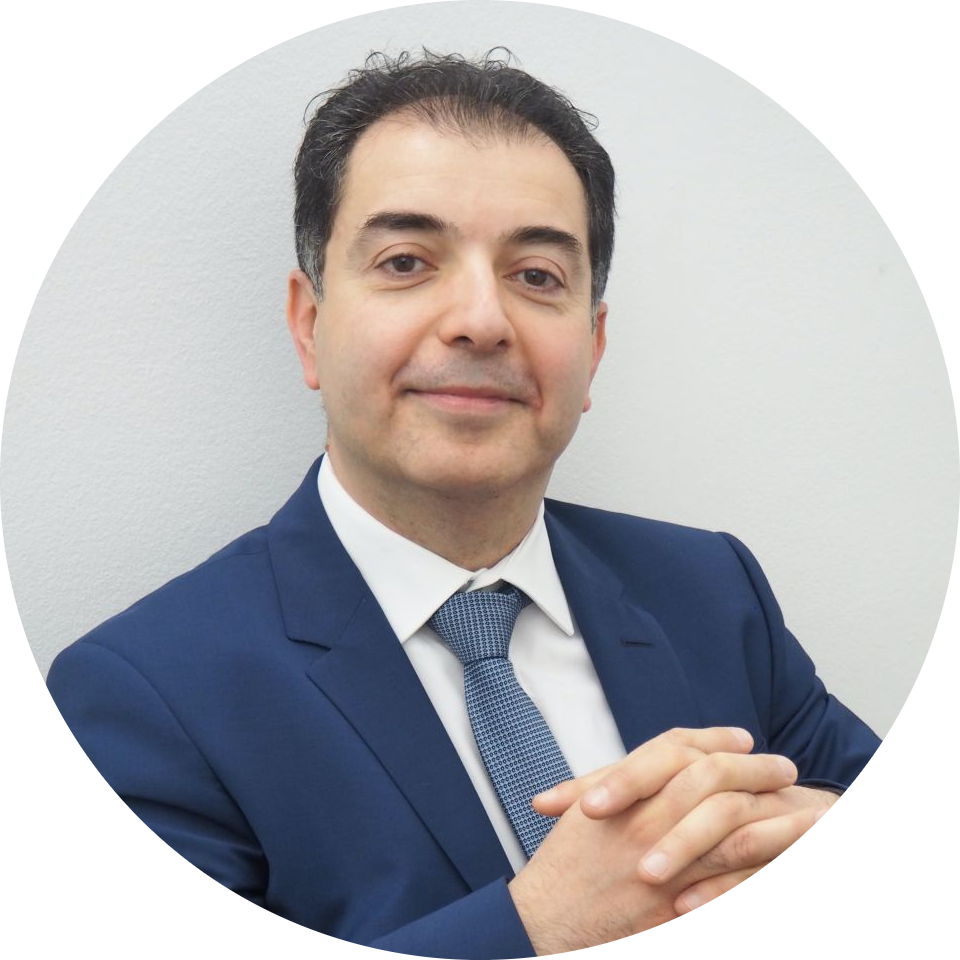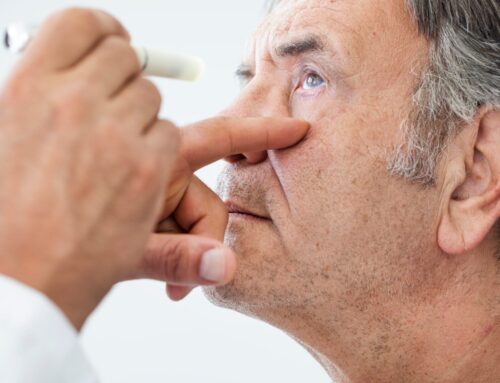
Types Of Cataract Surgery – Which Is Right For You?
Cataracts are a common eye condition that typically develops as we age. However, they can occur in younger people and babies too.
As cataracts develop in your eye, they grow over the eye’s lens, preventing light from getting in and blocking your vision. They can even change how you see colours and make the world seem clouded.
Cataracts only get worse over time, so treatment for them is essential. Surgery is the best treatment for cataracts that stop them from returning. Other non-surgical treatments may help manage your symptoms briefly, but cataracts must be removed to be treated.
There are different types of cataract surgery — but which is right for you? Discover everything you need to know about each type of cataract surgery with Eye Clinic London.
Phacoemulsification
Phacoemulsification is a type of cataract surgery used to remove the clouded lens of your eye. Your eye will be numbed with a local anaesthetic so if you’re concerned about whether cataract surgery is painful, don’t worry — you won’t feel a thing throughout the procedure.
First, the ophthalmologist will expose the lens from its capsule (a thin membrane that surrounds the lens) with a small incision. They will then use high-frequency sound waves to break it up so that it turns into an emulsified mass, before flushing and vacuuming out the mass.
The machine that specialists use to perform phacoemulsification is called a phaco machine and its innovative technology ensures a high degree of accuracy. Because of this, it’s one of the most popular cataract surgeries in the world.
Once the ophthalmologist has removed the lens, they place an artificial one inside your eye’s capsule. The artificial lens can be silicone or acrylic and is called an intraocular lens (IOL). Once fully recovered, the surgery should restore your vision and you may need to update your glasses prescription.
Benefits and limitations
Phacoemulsification has many benefits, including the following:
- It is less invasive as only a small incision is necessary — reducing recovery time and the risk of complications
- It is quick to be performed
- The lens capsule is kept in the eye, which provides a sturdy foundation for the new lens
However, like all types of surgery, phacoemulsification does have limitations. Sometimes, the high-frequency sound waves don’t break up the lens, or the lens may be damaged from a previous injury — making the rest of the procedure impossible.
Recovery
Phacoemulsification is a relatively quick surgical procedure, taking up to 30 minutes to complete. It is also performed as an outpatient procedure. After completing it, the nurses will take you to a recovery room until the anaesthetic has worn off.
Someone must drive you home as your vision may still be slightly blurred.
Once you are resting at home, you need to take it easy for the next few weeks. It’s normal to develop bruising or burst blood vessels around your eye, but these will fade quickly. During your recovery, you must avoid any activities that could get dirt, dust or other irritants in your eyes, such as cutting the grass or going out on windy days.
You may be prescribed antibiotic eye drops for up to 10 days to avoid infections and promote healing. It can take four to six weeks for your eye to recover fully.
Phacoemulsification will not only get rid of your cataracts but also prevent them from returning.
Extracapsular cataract surgery
Extracapsular cataract surgery is used mostly when the existing cataracts are too advanced for phacoemulsification.
In this surgery type, the ophthalmologist removes the cataract as one piece instead of the emulsified mass. They then replace the lens with an IOL lens to restore your vision.
Benefits and limitations
Extracapsular cataract surgery does have some benefits, but it also has some limitations. A significant benefit of this surgery is that it can treat cataracts that other surgeries cannot.
It may, however, result in vision loss later in life since the posterior capsule (the barrier between the different eye segments) can cloud (opacify) over time again.
Recovery
Recovery from extracapsular cataract surgery takes typically around eight weeks, and you may be prescribed antibiotic eye drops to help with the healing.
This type of surgery takes slightly longer to recover from than phacoemulsification as the procedure is slightly more invasive, requiring a larger incision to remove the lens. Due to the larger incisions, you’ll need sutures to close them up — increasing the healing time.
While extracapsular cataract surgery can remove your cataracts, it can cause problems down the line with the remaining posterior capsule.
Femtosecond laser-assisted cataract surgery
Femtosecond laser-assisted cataract surgery differs from phacoemulsification and extracapsular surgery as it uses a laser to help perform the procedure.
In femtosecond laser-assisted surgery, the ophthalmologist uses a laser to make small incisions and access the lens. The laser also fragments the lens so they can remove it easily and replace it with the IOL lens.
Benefits and limitations
Femtosecond laser-assisted surgery has many benefits, such as:
- Enhanced accuracy
- Speedy recovery
- Complete cataract removal
However, there are some limitations. Only some people are suitable for this surgery due to their eye anatomy and the type of cataracts they have. Your chosen ophthalmologist will advise you on whether this type of surgery will work for you.
Recovery
After femtosecond laser-assisted surgery, the ophthalmologist will place a protective patch over your eye. Someone must drive you home as your vision will not be fully restored yet.
You should be able to see an improvement in your vision within a few days, but full recovery will take a few weeks depending on the severity of your cataracts.
Is femtosecond laser-assisted cataract surgery safe?
Femtosecond laser-assisted cataract surgery is considered a very safe procedure with minimal risks. The use of the laser ensures a high rate of accuracy when making the incisions.
Which is the best cataract surgery procedure for your circumstances?
The type of cataract surgery that is right for you depends on several factors. The most used type of cataract surgery is phacoemulsification, but this may not be suitable for everyone. If your cataracts are very advanced, you may need extracapsular cataract surgery to ensure the best results.
To have femtosecond laser-assisted cataract surgery, your eye shape and anatomy must also be right for the procedure. Furthermore, not all ophthalmologists will have the laser equipment at their clinic as it is expensive and requires further training.
If you’re unsure about which type of cataract surgery is right for you, then speak with your chosen ophthalmologist so they can make the best decision based on your circumstances.
If you are suffering from cataracts and want to know more about the types of surgery we offer at Eye Clinic London, contact us at 0203 807 5063 or request a call back from our expert team.
We will be happy to answer any questions and help you begin your journey to restoring your vision.
Sources
https://www.nhs.uk/conditions/cataracts/
https://www.mayoclinic.org/diseases-conditions/cataracts/symptoms-causes/syc-20353790
https://www.verywellhealth.com/phacoemulsification-3422159
Share This Story, Choose Your Platform!
Suffering from dry eyes?
Take our 2-minute online dry eye assessment to see if we can help alleviate your symptoms and tackle your condition
Our most popular treatments
What our patients say…
“As soon as I met Mr Hamada, I knew I was in safe hands. He is an expert in his field, and very reassuring. His work was impeccable, and I would thoroughly recommend him to anyone wanting a professional, kindly, expert service.”
“I came all the way from the US to be evaluated by Mr. Samer Hamada who provided me with a world-class experience. I was treated with technology that doesn’t exist in the United States. My vision improved significantly since the surgery. Mr. Samer Hamada is definitely a Keratoconus expert.”
“I am glad to be with Mr Hamada. I am glad to be examined by Mr Hamada who acts responsibly and professionally. I never had this experience before from a previous ophthalmologist. I am thankful to Mr Hamada for the successful diagnosis and treatment of my case.”
“What a Consultant. Dr. Hamada is a man who was born for this profession. As soon as we walked into the room you felt that you had met a man who was gentle and kind. His demeanour was of a man who knew his trade. He speaks in a way that you will understand. He explains exactly what is wrong and the way he will help fix it for you.”
“Mr Hamada’s London Eye Care and his team are a delight. Nothing was too much trouble and the help, support, advice and guidance before during and after the surgery was all world class. I have worn glasses since the age of 13 years and had the onset of cataracts for the last five so it has all been very much a life changing experience to be free from glasses once more.”
“Mr Hamada, his assistant Joanna and his ophthalmic technicians provide a caring, efficient and high quality service. From the admin through to the surgical aftercare we were very well looked after and we had a high degree of confidence in Mr Hamada’s abilities. Our daughter’s cataracts have been corrected (under general anaesthetic) and her quality of life has improved substantially. You also feel well cared for throughout – the human touch is vital in healthcare, but not always delivered, so well done and thanks to all of the team.”
“We were referred to Dr.Hamada by one of the UK experts. The expert himself admitted that Dr.Hamada was better than him!! We were not disappointed at all. Dr. Hamada was excellent with my child. His communication skills and knowledge were exemplary. He gave us clear management plan and would not hesitate to recommend him.”
“Dr Hamada is an excellent, highly competent doctor with a very kind and sympathetic manner. His reputation for successfully treating dry eye patients seems unparalleled. His team are all extremely friendly and helpful, especially Dr Hamada’s PA Joanna, making the overall experience better than anywhere else I’ve been!”
“Appointment setting and follow-up were very efficient and well managed. Mr Hamada was kind, reassuring, knowledgeable and had a very warm manner with my young son, making him instantly feel at ease. I feel that we can trust him and that he will finally be able to solve my son’s long-term eye problems that have stumped other eye doctors.”
We have replaced some of the images of real patients who provided these testimonials to protect their privacy.

About the expert
Mr Samer Hamada | Consultant Ophthalmologist and Corneal Surgeon
MD, MSc, DO (hons), FRCSEd, FRCOphth I am Samer Hamada, founder and consultant ophthalmic surgeon with over 20 years’ experience in ophthalmology. I am a world-renowned specialist in cornea, cataract and refractive surgery. I’m not only a leading surgeon but also the only dual fellowship trained in corneal diseases in children from reputable institutions in the UK. At Eye Clinic London I work closely with other consultant ophthalmologists, optometrists and orthoptists to achieve the best outcomes for our patients. Our main aim is to make sure our patients get the safest and best treatments available to them. We put your safety before anything else so you can rest assured that if you choose us you will be in the best and safest hands.












